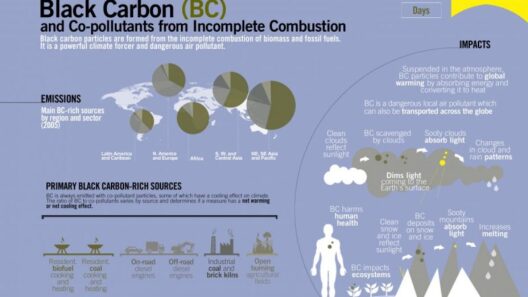As the global community grapples with the dire ramifications of climate change, renewable energy technologies, particularly solar panels, have become focal points in the discourse surrounding sustainability. The question arises: do solar panels help or harm the fight against global warming? This inquiry necessitates a multifaceted exploration of solar energy’s life cycle, its ecological impacts, and the broader socio-economic implications. Such an examination reveals that while there are legitimate concerns regarding solar panels, the net effect of their deployment is significantly beneficial in mitigating climate change.
To commence, one must appreciate the fundamental mechanics of solar panels. These devices harness sunlight and convert it into electricity, thereby providing a renewable alternative to fossil fuels. This pivotal shift reduces greenhouse gas emissions, which are primarily responsible for global warming. Notably, research indicates that solar energy systems can diminish carbon emissions significantly over their operational lifespan, thereby contributing to the overarching goal of reducing our carbon footprint.
However, it is imperative to recognize that the manufacturing processes for solar panels are not devoid of environmental costs. The extraction of raw materials, such as silicon, silver, and other metals, involves substantial energy consumption and can lead to habitat destruction and wastewater pollution if not managed responsibly. Moreover, the production of photovoltaic cells generates greenhouse gases, albeit in quantities considerably lower than those produced by fossil fuel consumption. The contrast between emissions from traditional energy generation and those from solar panel production serves as a springboard for deeper analysis.
Another point of contention revolves around the end-of-life management of solar panels. As solar technology matures, a burgeoning waste stream emerges, comprising decommissioned panels that must be recycled or disposed of. Solar panels have a projected lifespan of 25 to 30 years, and if not addressed, their accumulation could result in significant landfill waste. However, advancements in recycling technologies and policies are being developed to mitigate these concerns. The potential for second-life applications, where decommissioned panels are repurposed for energy storage or other uses, exemplifies the evolutionary trajectory of solar technology.
Furthermore, contemplating the land-use implications of solar farm installations prompts consideration of sustainability versus biodiversity. Large-scale solar farms often necessitate extensive land areas, which can lead to contention with agricultural land or natural habitats. Nevertheless, innovative dual-use strategies, such as agrivoltaics, are emerging where solar panels are integrated into agricultural landscapes, promoting both energy generation and food production. These approaches not only optimize land use but also demonstrate the potential for synergy between renewable energy and ecosystem preservation.
In contemplating the broader socio-economic context, the proliferation of solar energy has yielded substantial benefits. The solar industry has catalyzed job creation, employing thousands in various sectors ranging from research and development to installation and maintenance. This green job phenomenon contributes to local and national economies and engenders community resilience by reducing energy costs over time. In this light, the socio-economic dividends of solar technology further underscore its role in fostering a sustainable future.
Moreover, in regions prone to energy poverty, solar panels provide an accessible means for communities to achieve energy independence. By harnessing local sunlight, underprivileged areas can bypass reliance on centralized fossil fuel infrastructures, which often proves costly and unreliable. The decentralized nature of solar energy empowers communities, enhances energy security, and fosters socio-economic improvement.
Despite these merits, skepticism persists. Critics argue that solar energy is not a panacea for climate change due to its intermittent nature. Solar energy generation is contingent on sunlight availability, raising concerns over reliability and the need for energy storage solutions. Nevertheless, innovations in battery storage technology and grid integration are making substantial strides toward addressing these limitations. As energy storage becomes more efficient and affordable, the viability of solar energy systems as a reliable power source will strengthen, facilitating greater adoption.
The exploration of the carbon footprint associated with workdays in solar panel factories reveals another layer of complexity. While manufactured solar panels require energy inputs, the carbon offset achieved through their operational use frequently outweighs these initial emissions. Lifespan analyses indicate that solar panels can counteract their own embodied carbon emissions multiple times throughout their operational life, thus affirming their role in mitigating climate change.
Consequently, when assessing the long-term effects of solar panel implementation, it becomes clear that their benefits significantly eclipse potential drawbacks. The imperative of transitioning away from fossil fuel dependency cannot be overstated. As global temperatures continue to rise, the advent of renewable energy sources such as solar power is essential in counteracting climate change’s devastating impacts.
In conclusion, solar panels serve as a linchpin in our collective efforts to combat global warming. Despite their lifecycle challenges, the cumulative benefits of solar energy—from reduced greenhouse gas emissions and job creation to enhanced energy security and resilience—render them a crucial component of a sustainable energy future. Society must continue to innovate and expand the solar sector, ensuring that we maximize the positive impacts of this technology while diligently addressing its associated challenges. The path forward demands dedication, collaboration, and an unwavering commitment to sustainable practices that harmonize ecological integrity with human advancement.







